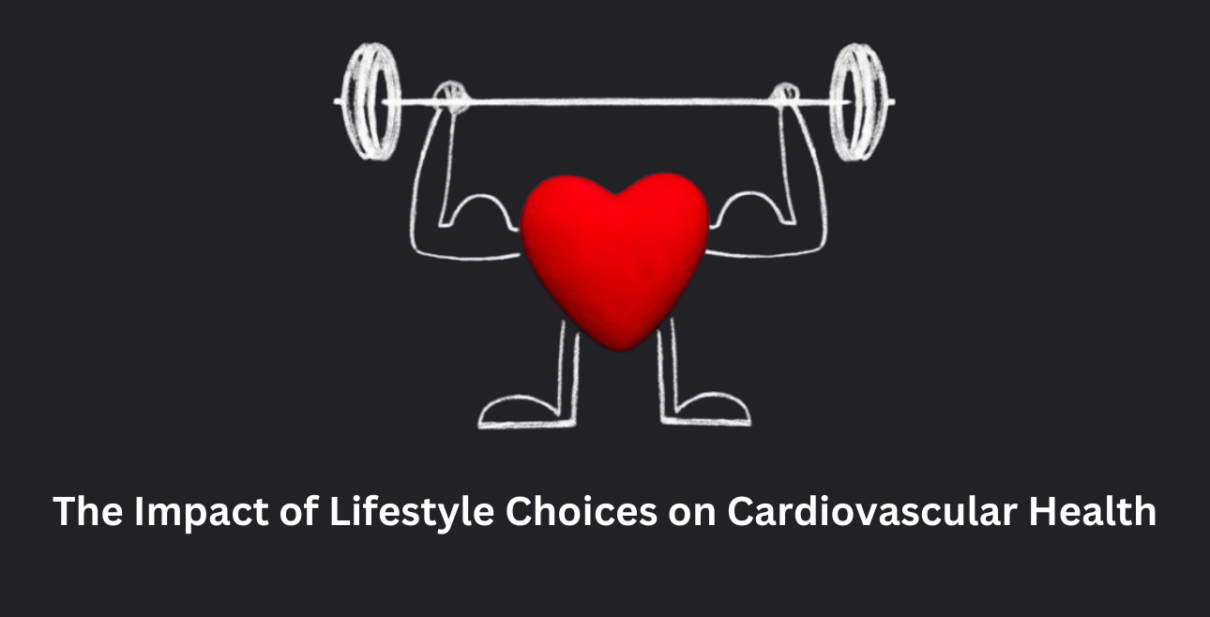Heart health is determined by the simple choices we make every day—what to eat, whether to stay active or sedentary and how to manage stress. These lifestyle choices can determine whether we prevent or fall prey to heart diseases, which remain a leading cause of death globally. Dr. Akshay Kashid, cardiologist specialist in Baner, Pune, highlights that adopting healthy habits can keep the cardiovascular system functioning optimally and significantly reduce the risk of heart problems.
Cardiovascular Health
The heart and blood vessels are parts of the cardiovascular system. They circulate blood, oxygen, and nutrients to different parts of the body. Poor lifestyle habits include:
- Sedentary routine
- Unhealthy diet
- Chronic stress
These habits can lead to conditions such as:
- High blood pressure (hypertension)
- High cholesterol
- Heart attack
- Heart failure
- Stroke
- Atherosclerosis (blocked arteries)
Cardiovascular care experts emphasize that making proper lifestyle choices can significantly reduce these risks and promote heart health.
How Lifestyle Choices Affect Cardiovascular Health
- Poor Nutrition Diet
Diet is at the center of heart health. High intake of saturated fats, trans fats, sugar, and processed foods may result in obesity, high cholesterol, and hypertension, all major contributors to heart disease.
- Heart-Healthy Foods: Incorporate fruits, vegetables, whole grains, lean proteins, and healthy fats found in nuts, avocados, and olive oil.
- Reduce Sodium Intake: Excess salt intake can lead to hypertension, which puts long-term pressure on the heart.
Small changes like reducing fried foods and replacing sugary drinks with water can make a significant difference over time.
- Physical Inactivity
A sedentary lifestyle contributes to heart problems. Infrequent exercise leads to weight gain, poor circulation, and an increase in blood pressure.
- Advantages of Exercise: Regular physical activity strengthens the heart muscle, improves blood circulation, and regulates blood sugar and cholesterol levels.
- Recommended Activity: Perform at least 30 minutes of moderate-intensity exercise like walking, cycling, or swimming most days of the week.
Even small habits, such as taking the stairs instead of the elevator, can contribute to improved cardiovascular health.
- Smoking and Excessive Alcohol Consumption
Smoking is one of the most harmful habits for heart health, as it damages blood vessels, reduces oxygen levels, and increases the risk of plaque buildup in the arteries. Excessive alcohol consumption can also lead to high blood pressure, arrhythmias, and cardiomyopathy.
- Quit Smoking: Quitting smoking drastically reduces the risk of heart disease.
- Limit Alcohol: Moderation is key—no more than one drink a day for women and two for men.
- Stress and Mental Health
Chronic stress can take a toll on heart health. Stress often leads to unhealthy habits like overeating, smoking, or excessive drinking, which negatively impact the heart. Stress hormones also increase blood pressure and heart rate.
- Stress Management Strategies:
- Practice mindfulness and meditation.
- Pursue hobbies or activities you enjoy.
- Maintain a healthy work-life balance.
Prioritizing mental health through therapy or counseling can help manage emotional stress effectively.
- Obesity and Weight Management
Excess body weight increases the risk of hypertension, high cholesterol, and diabetes, all of which strain the heart. Even losing a small percentage of body weight can improve heart health.
- Healthy Weight Goals: Focus on sustainable weight loss through balanced nutrition and regular exercise.
- Monitor BMI and Waist Circumference: These indicators can help identify risks early and track progress.
Steps to Adopt a Heart-Healthy Lifestyle
To decrease your risk of heart disease and improve your cardiovascular health, consider the following steps:
- Schedule Regular Heart Check-ups
Regular visits to a cardiologist help detect heart-related issues early and monitor key health indicators such as blood pressure, cholesterol, and blood sugar levels. - Follow a Heart-Healthy Diet
Prioritize natural and unprocessed foods while limiting saturated fats, sugar, and salt. - Stay Active
Aim for at least 150 minutes of moderate physical activity per week to strengthen your heart. - Quit Smoking and Reduce Alcohol Use
Seek professional help to quit smoking and drink alcohol only in moderation. - Manage Stress
Practice mindfulness, prioritize sleep, and build strong social relationships to cope with stress effectively. - Achieve Healthy Weight Goals
Combine proper exercise with a nutritious diet to maintain a healthy weight.
Conclusion
Your lifestyle choices play a crucial role in maintaining your cardiovascular health. By adopting a heart-healthy diet, staying active, managing stress, and scheduling regular check-ups, you can significantly reduce the risk of heart disease. Dr. Akshay Kashid, cardiologist specialist in Baner, Pune, encourages everyone to take proactive steps toward better heart health. Small, consistent changes in lifestyle can lead to long-term benefits, ensuring you live a healthier, heart-strong life.
If you are ready to prioritize your heart health or need expert advice, consult Dr. Akshay Kashid today for personalized care and guidance.



